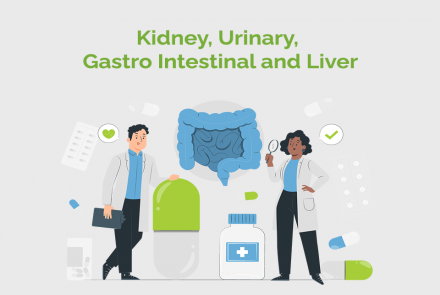Chronic Kidney Condition, Incontinence, Urinary Tract Infection
Gastro Intestinal, Stomach related, Indigestion
Gastroesophageal Reflux Disease (GERD)
Liver Disease, NAFLD, Chronic Hepatitis

Chronic Kidney Condition, Incontinence, Urinary Tract Infection
Gastro Intestinal, Stomach related, Indigestion
Gastroesophageal Reflux Disease (GERD)
Liver Disease, NAFLD, Chronic Hepatitis